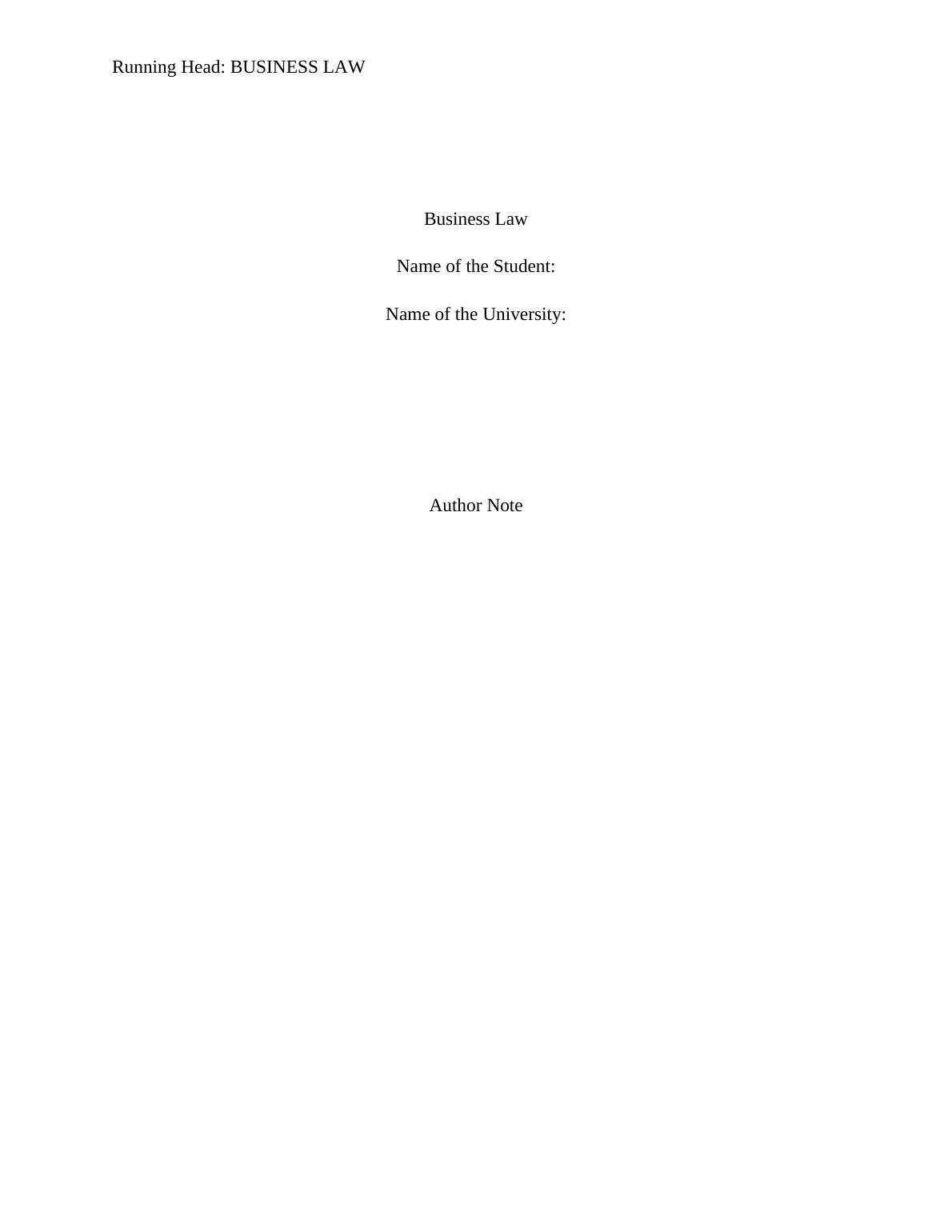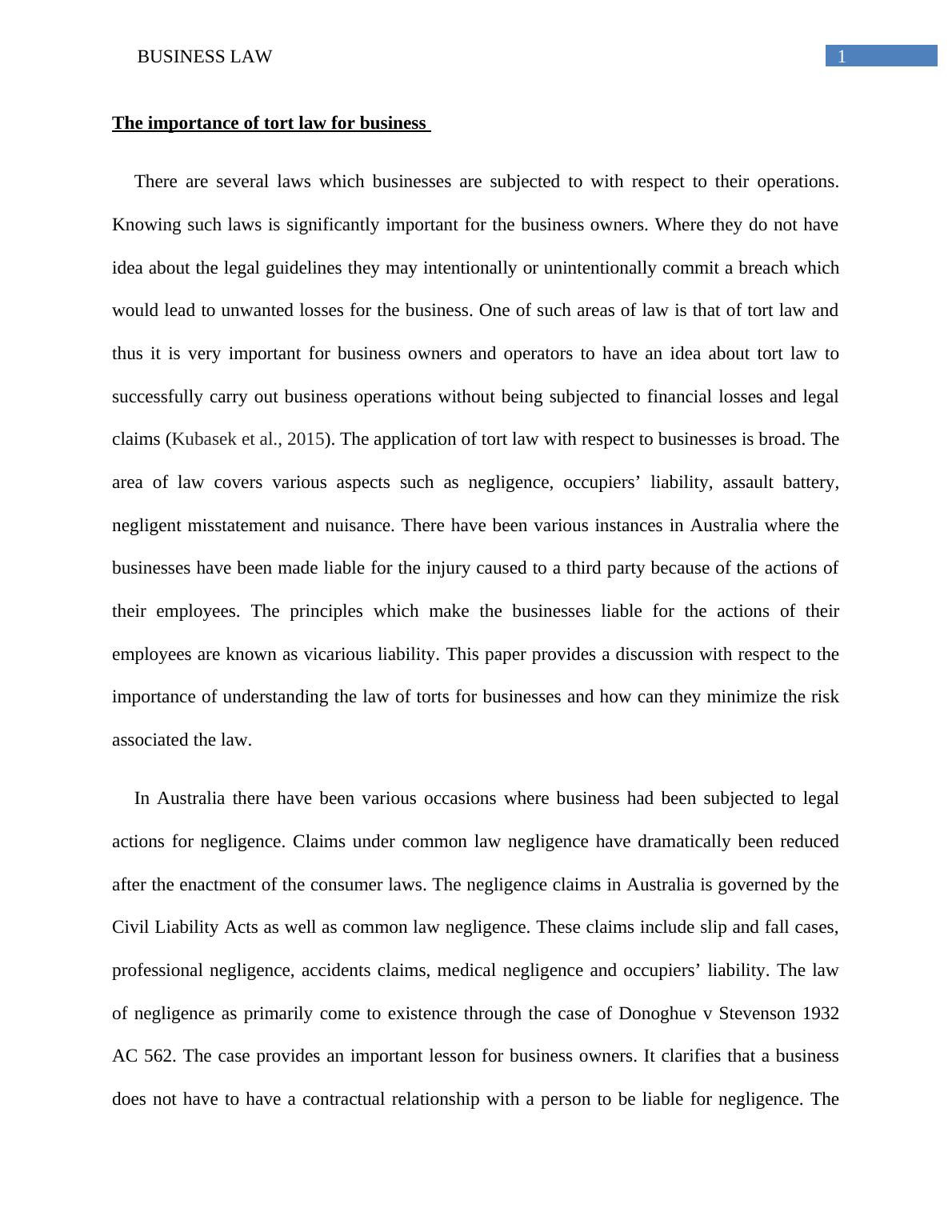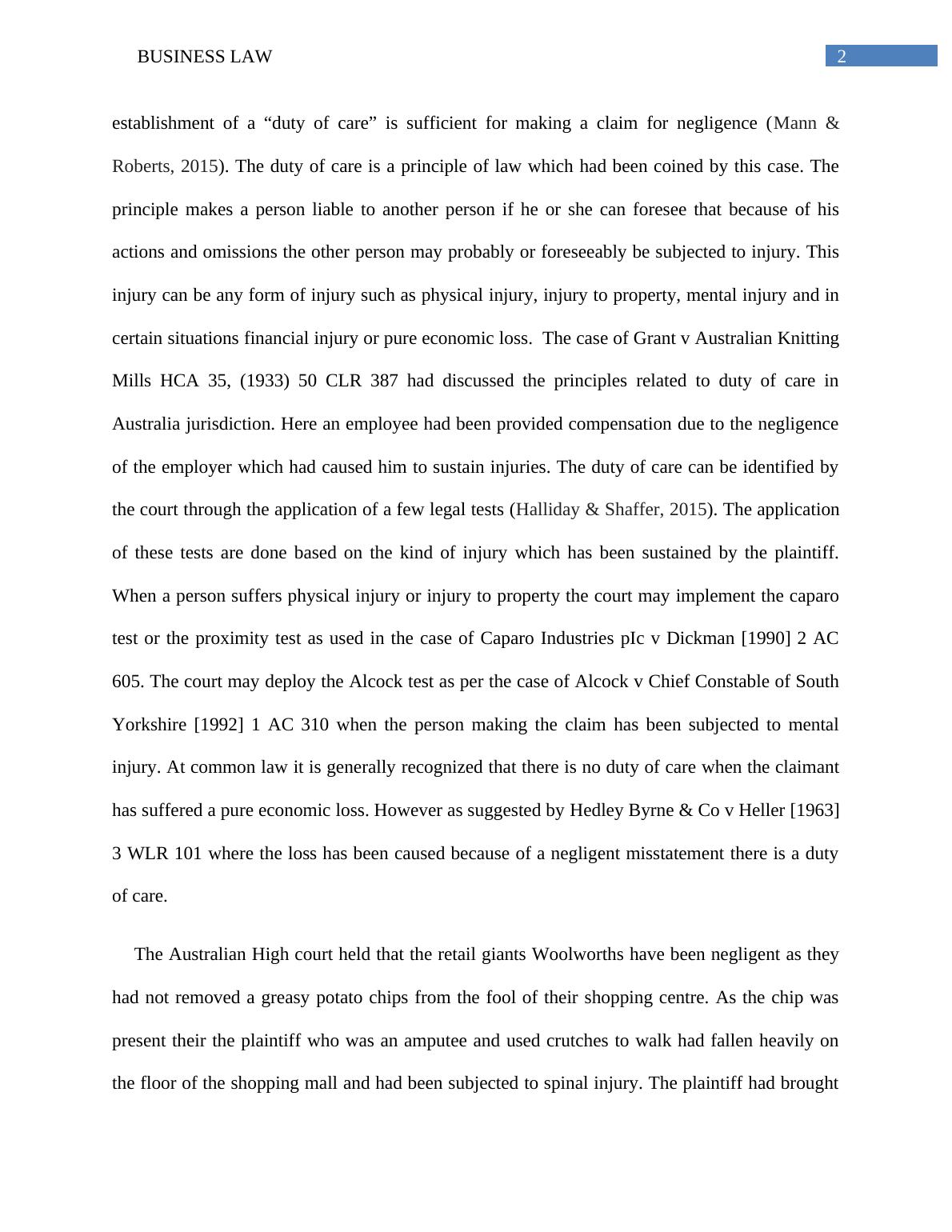Importance of Tort Law for Businesses
Distinguish between a contract and an agreement, define a contract, outline the elements of a simple contract, outline the elements to be satisfied in order to make a simple contract valid, distinguish between a formal and a simple contract.
9 Pages2538 Words216 Views
Added on 2023-06-08
About This Document
This paper discusses the importance of understanding the law of torts for businesses and how they can minimize the risk associated with it. It covers various aspects such as negligence, occupiers’ liability, assault battery, negligent misstatement and nuisance. The paper also explains the principles of vicarious liability tort and the duty of care. The subject is Business Law and the course code is not mentioned. The paper is relevant for students studying law or business management.
Importance of Tort Law for Businesses
Distinguish between a contract and an agreement, define a contract, outline the elements of a simple contract, outline the elements to be satisfied in order to make a simple contract valid, distinguish between a formal and a simple contract.
Added on 2023-06-08
ShareRelated Documents
End of preview
Want to access all the pages? Upload your documents or become a member.
Law Of Tort Negligence Assignment
|5
|1029
|14
LW651 - The tort law assignment
|5
|1183
|136
Tort of Negligence: Liability of Australian Post Employees and Financial Adviser
|9
|2002
|417
Business Law in Australia with a Particular Reference to Negligence and Misrepresentation- Assessment
|10
|2768
|146
LW651- The Australian Consumer Law - MacTools Ltd Tort Law
|6
|1332
|82
Tort Laws Name of the University Author Note 1 The area of law under which Georgina can make a claim is the law of negligence
|8
|1905
|447



